So, it’s almost here. England’s 2018 World Cup campaign is just days away from kicking off against Tunisia. Heading into the group stages, England have some certain starters, debatable options and a few outside shots or quite possibly ones to watch.
We should all now how unpredictable of a sport football is by now and that any one of the 23 men selected could shock the World. This is something we saw in 1998 against Argentina with an 18-year-old Michael Owen, 2004 when an 18-year-old Wayne Rooney took the Euros by storm, and many more times.
This time around though, I believe the young prospect everyone should look out for is Ruben Loftus-Cheek. Being from Lewisham, (south east London), like myself Loftus-Cheek has been on my radar for a while now and with the help of Chelsea fans back in school I quickly learned how much of a talent he is.
Thankfully, his development at Chelsea has somewhat differed from young promising players like himself. Instead of being shipped abroad every year, his first loan spell was very beneficial. Returning to south east London with Crystal Palace, over the course of the 2017/18 season, Loftus-Cheek was a massive help to keeping the Eagles in the Premier League. Along the way, he also proved to Gareth Southgate and many in England that he was worthy of a spot on the plane to Russia and here are some reasons why:
Dribbling & Technique
With the players ahead of him, its most likely that Loftus-Cheek’s appearances will come off the bench. This is something that could help his cause even further during the tournament as a late addition of his energy and dynamism could be too much for opposition teams.
However, it’s not just because teams will be tiring at this point that Loftus-Cheek can make a difference, but also how he dribbles on the ball.
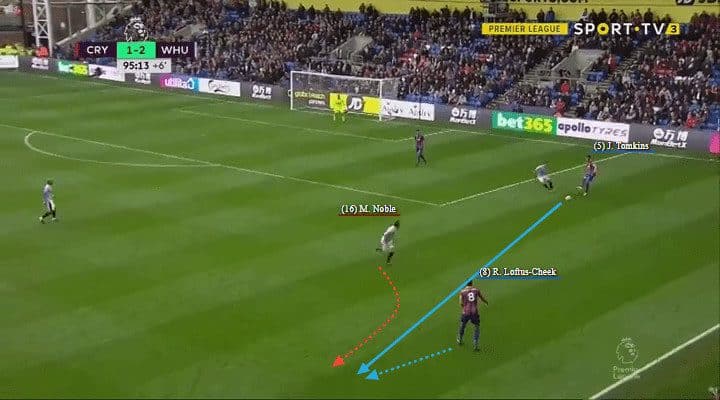
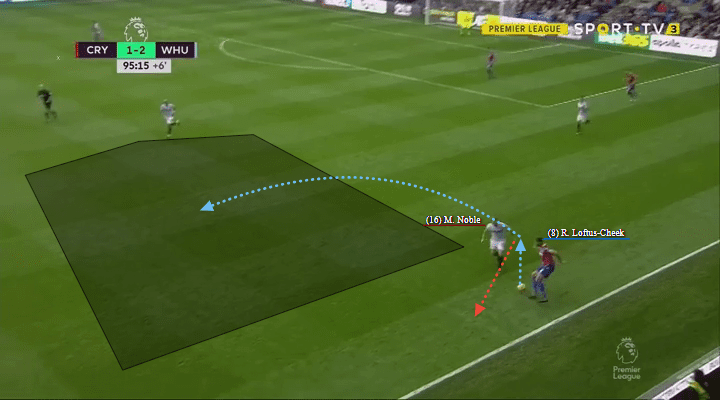
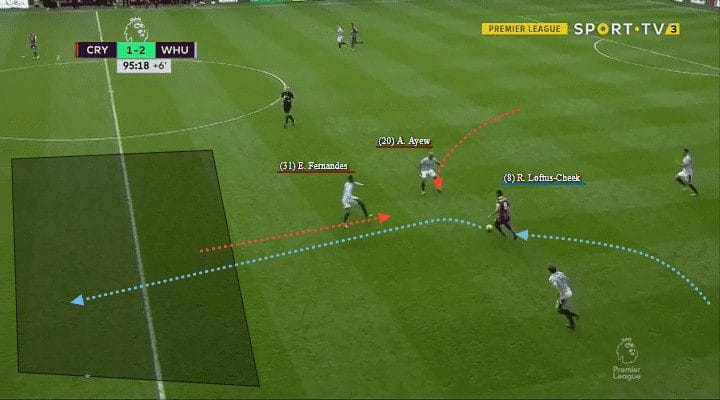
This example is something we may see when he gets minutes in Russia as when games reach this point, they will naturally open up allowing him to flourish. Crystal Palace also scored off the back of this, so his inclusion could make a massive difference.
Strength & Composure
One thing that Loftus-Cheek can offer opposed to England’s other attacking midfielders is strength on the ball. With Dele Alli, Raheem Sterling and Jesse Lingard less likely to engage in physical duels, but standing at 6’3” Loftus-Cheek has the build to go toe-to-toe with many opponents.
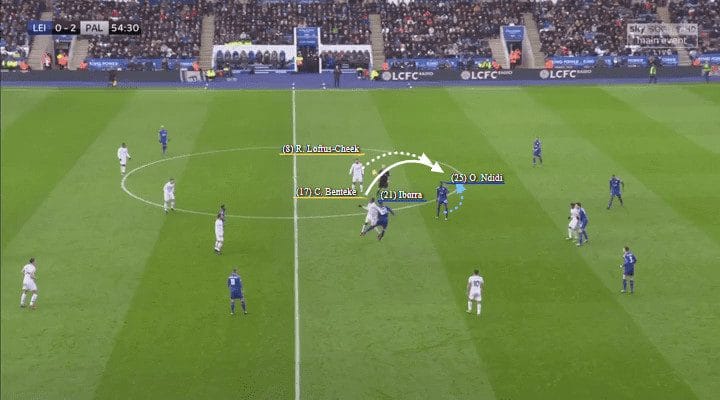
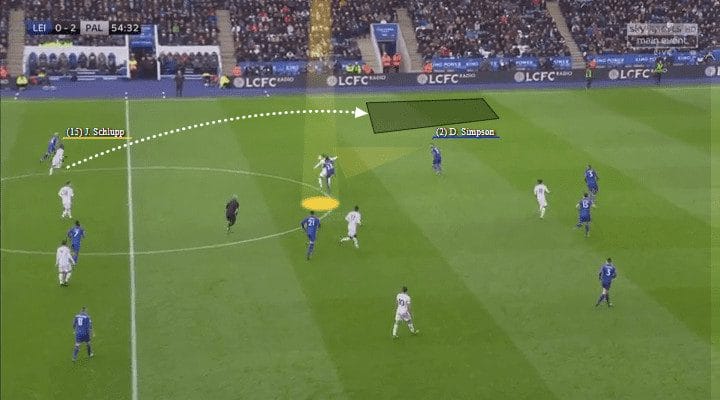
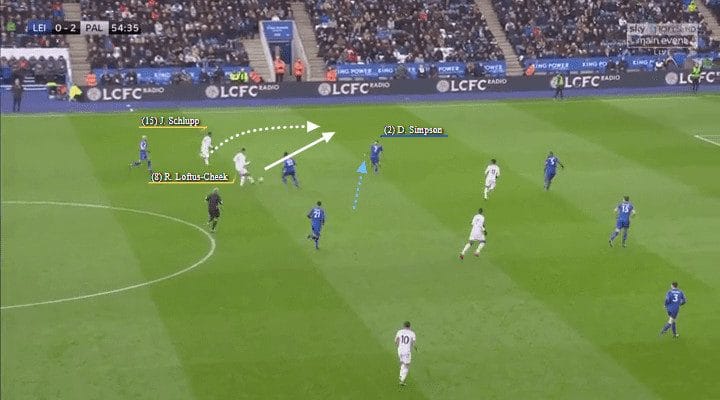
As Southgate plans to use wing backs at the World Cup, this is also something that could be a massive help. If Loftus-Cheek is brought into the fold, utilising him this way will allow the wing backs and other central attacking players the time to bomb forward and create some more space for them to exploit.
Loftus-Cheek’s strength was also on show when England played Costa Rica as he when dribbling upfield he used his body to shield the ball well and win fouls.
Vision
Like any other midfielder, Loftus-Cheek has an eye for a pass, but is he able to produce against teams who choose to sit back in defence?
Looking at Tunisia and Panama in particular, these games may not be as plain sailing as expected. They may choose to go into a deep block throughout the game rather than attack England in order to avoid embarrassment or just because they may not believe in themselves.
If Loftus-Cheek is brought on in these circumstances, however, he did show on his England debut against World champions, Germany that he can unlock stubborn defences.
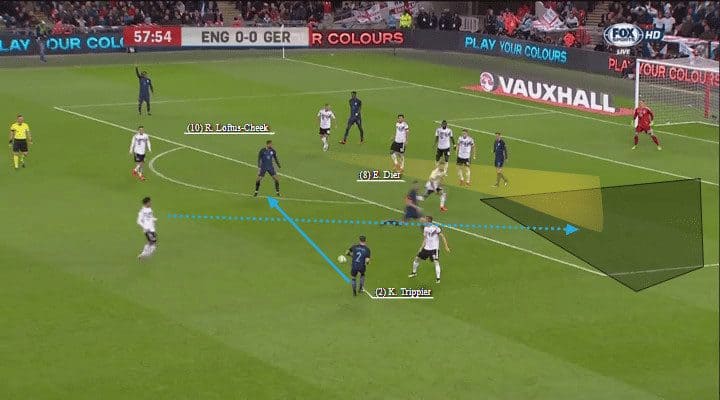
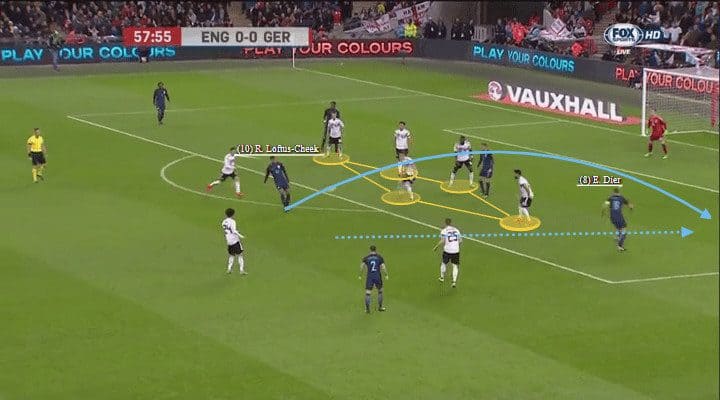
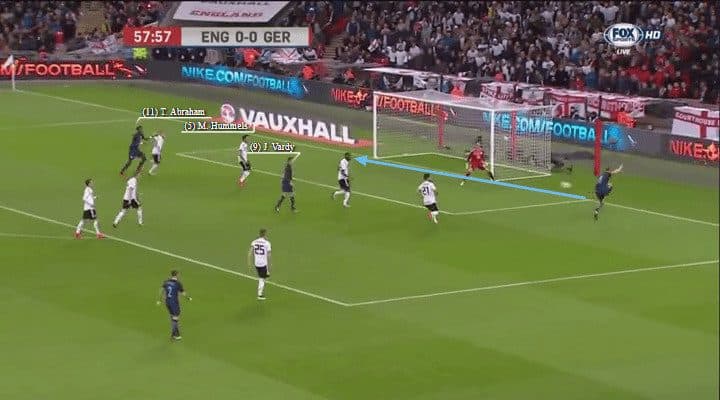
Showing this confidence and ability in possibly the biggest game of his career at that point, is something that shouldn’t be taken lightly. England are very fluid and runs like that could be made in the tournament so, knowing has the capability to both spot the pass and pull it off is a massive plus. Being able to open up defences that quickly can create great goal-scoring chances that should be put away, however, that’ll be the job of whoever England’s forwards are at the time.
Summary
Going into the tournament, its expected that Loftus-Cheek will be introduced from the bench if he is to make it onto the pitch. However, with Southgate showing that he’s willing to select players on merit, if he makes a good impression when given his chance there just may be a possibility that he can force his way into the side.
He may be inexperienced, but that may not be the worst thing. Possibly having to prove himself more, he may be more willing to take risks and use the aforementioned attributes to help not just himself but England as a whole too.

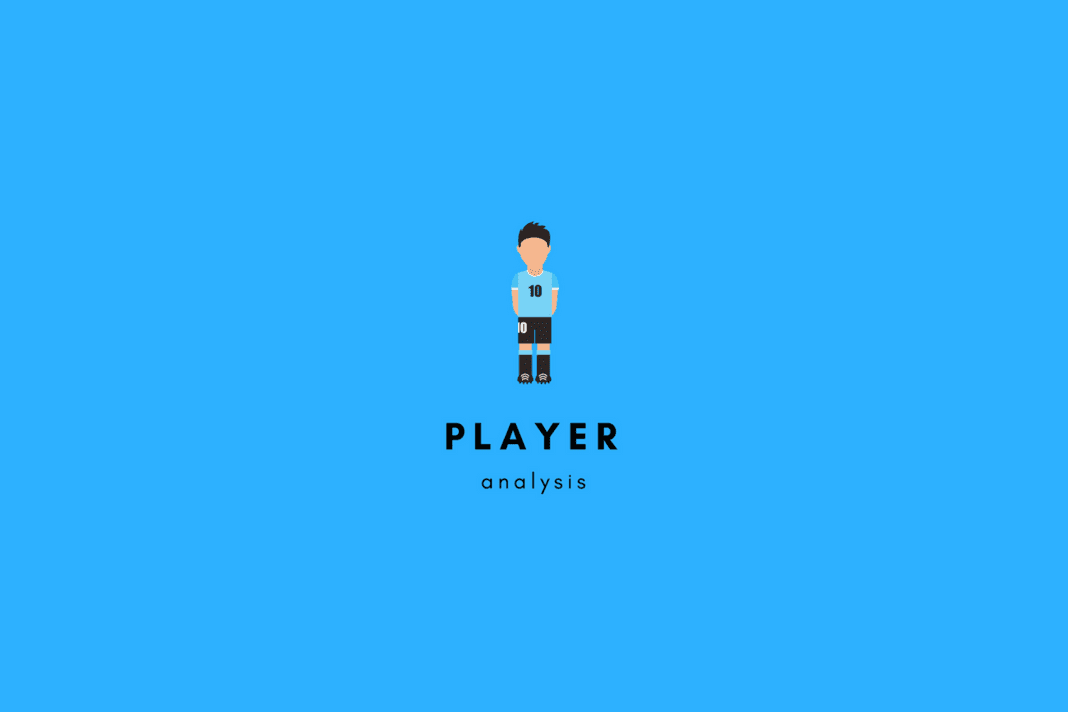



Comments